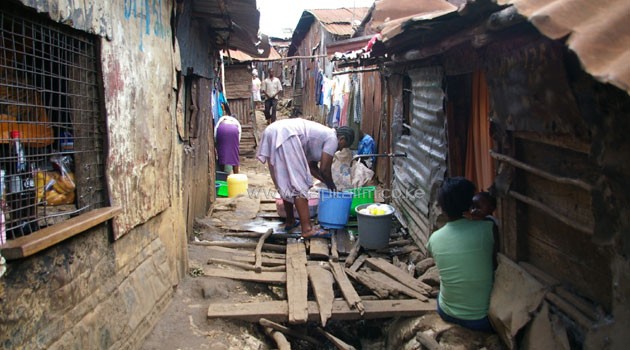Kenya’s Permanent Representative to the United Nations, Kamau Macharia, has for the last year co-chaired the open working group charged with developing the Sustainable Development Goals (SDGs) that will replace the MDGs for another 15 years.
“We are dealing with 193 countries, hundreds if not thousands of civil society organisations represented by major groups, it is about building consensus among all these people. Now millennium development goals were done in a room somewhere by a group of UN technocrats and presented to the world. This is easy. What we are trying to do is much more complex, and much more ambitious,” he says.
And again unlike the MDGs which were targeted at helping the developing world catch up with the first world, he says, the SDGs will apply equally to all 193 member states of the United Nations.
“One of the biggest problems we were facing at the start was this disbelief that we could be making common cause of development in the world, all of us. But once we begun to have open debate people begin to realise that there are fundamental issues that are of concern to all societies, all countries, and all economies,” he recounts.
So far 16 focus areas have been identified, ‘aspirational goals’ Macharia calls them: “You do not just want to be healthy. I also want to have a job, I also want to be free, I also want to have an income that enables me to live a life of dignity, I also want to live in an environment that is conducive to my well being, secure, I do not always want to be worried about climate undermining my agricultural activities or other economic pursuits.”
But even in the pursuit of these goals, he says, the working group is well aware that a number of states have yet to move past the physiological level of Maslow’s Hierarchy of Needs.
“Many countries have not achieved those goals to their full. So when you see the sustainable development goals in the end you will see that maybe the first five or six will look very similar to the millennium development goals except they will have a higher level of ambition.
If you look at Kenya for example, poverty remains a huge challenge. But this is not a Kenya thing. Poverty is not just a developing world challenge. Poverty is also a big challenge for many developed countries,” Macharia points out.
But as their name suggests, one of the major focus areas of the SDGs is the energy that will power this development.
“Modern energy for all is going to be a goal. Issues of industrialisation but not European 18th, 19th, 20th century industrialisation that created the climate change catastrophe that we are facing. We want a 21st century type of industrialisation that protects the earth, protects our health and that gives us economic growth and gives us wealth,” Macharia says.
And while there is consensus in all these areas, there remain some contentious issues, he says, such as the political baggage that would accompany a human rights agenda.
“It is always one group of countries going on and on about the human rights in other groups of countries and yet human rights are a concern everywhere. How come law enforcement has such a jaded eye towards African Americans in America? In Europe you see what is happening to African immigrants who are dying by their hundreds in the Mediterranean Sea.
Those are human rights abuses perpetrated by countries that are perfectly able to take in these people. You’ll never hear that as a debate against human rights while as here in Kenya we are hosting hundreds of thousands of refugees in spite of our small weak state. We are not letting them be eaten by animals in the bush, so which human rights are we talking about?” Macharia poses.
The other contentious issue is security given there already exists a UN Security Council but as security is necessary to economic empowerment, taking the effect terror has had on tourism in Kenya for instance, the African Union is insistent that it should be a part of the goals.
But Macharia says they are tackling it from the angle of equality, “We have to work together both rich and poor to attain this equality because it is the only way we can truly build peace and security because peace is driven a lot of times because of inequality between nations and peace and insecurity is also driven within a country by inequality because some people feel they have to pursue and gain wealth through unpeaceful means,” he explains.
And with a sustained political will among the UN member states, Macharia is optimistic the world will soon have its own set of Vision 2030 goals.












































